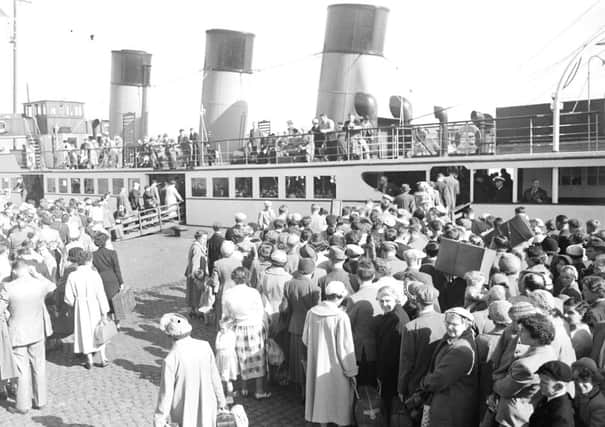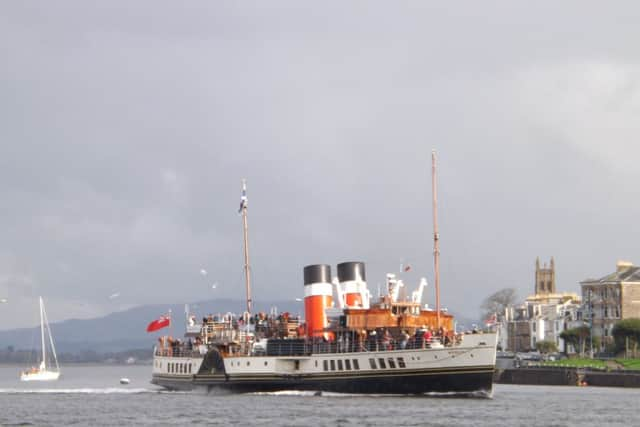Scottish phrase of the week: Doon the watter


Going doon the watter referred to the practice of going down the Clyde and also, by extension, to holidays by the coast. Previously a pastime for only the wealthiest of Glaswegians, the launch of Henry Bell’s Comet in 1812, the Clyde’s first ever steamboat, meant that many more Glaswegians and their families soon began to enjoy going doon the watter.
As the vogue for these coastal holidays began to spread and the new era of steamboat travel allowed access to the coast for people in greater numbers, existing communities like Helensburgh, Gourock, Largs, Millport, Dunoon and Rothesay (the latter two were perhaps the most popular of all) were expanded and developed as seaside resorts.
Advertisement
Hide AdSoon the expanding railway network added to the competitive fleet of paddle steamers ensuring even more swift and sure means of travel.


By the turn of the 20th century the practice had become particularly popular during the Glasgow Fair weekend. Though the resorts, boats and trains were often overcrowded during this time, for working class families, their time doon the watter marked a refreshing and rewarding alternative to the grime and atmospheric pollution of their normal environment.
For the many who could not afford a stay in the cheap accommodation, the coastal towns offered a day trip on the paddle steamer to Rothesay and the Kyles of Bute provided excitement enough - especially if the whole family was involved.
Indeed it is thought that the term ‘steaming’ originated from this time and referred to people who had perhaps ejoyed a little too much to drink and ended up drunk on the steamboats - hence ‘steaming’ drunk.
By the 1950s the era of cheap air fare and cheap foreign travel effectively ended the practice, though many people do still enjoy day trips doon the watter - the coast has always been a popular and attractive destination for local holidaymakers.
The practice of going doon the watter was immortalised in the song - Song for the Clyde:
‘There’s Paw an’ Maw at Glasgow Broomielaw.
They’re goin’ “doon the water” for “The Fair.”
There’s Bob an’ Mary, on the Govan Ferry,
Wishin’ jet propulsion could be there.
There’s steamers cruisin’, and there’s “buddies” snoozin’,
And there’s laddies fishin’ frae the pier;
An’ Paw’s perspirin’, very near expirin’,
As he rows a boat frae there to here.’